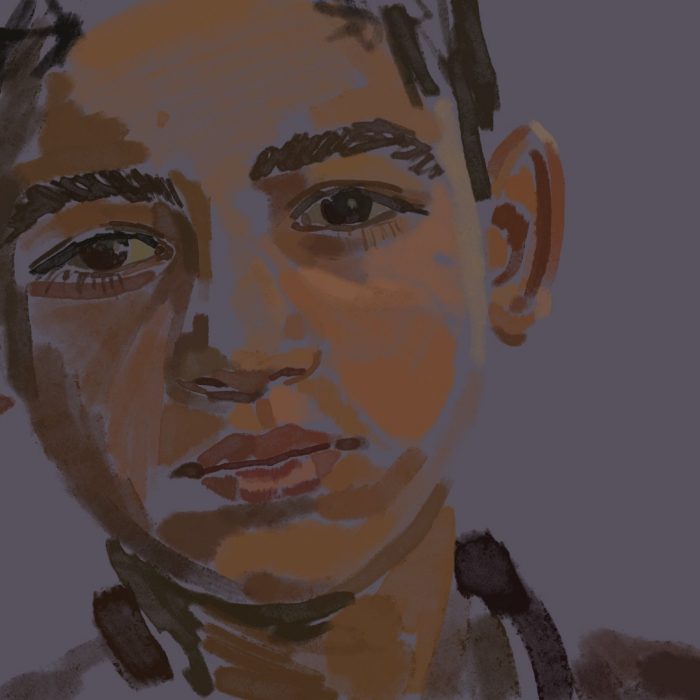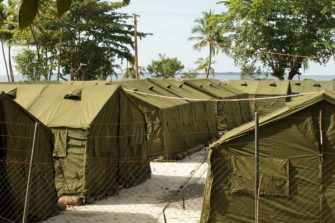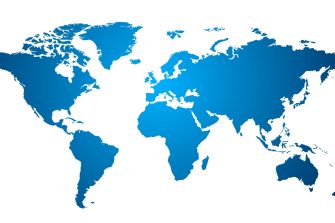Offshore processing
A project to examine the implications of policies which see asylum seekers forcibly transferred ‘offshore’ to have their protection claims processed in the territories of States such as Nauru, Papua New Guinea and Rwanda.

The challenge
For most of the past two decades, ‘offshore processing’ has been a hallmark of Australia’s approach to deterring people from seeking asylum by sea. This policy involves forcibly transferring people elsewhere to have their protection claims processed in the territories of third States – specifically, Nauru and Papua New Guinea. It is not a new phenomenon. However, whereas it was long viewed as a significant exception to normal practice, now other countries are looking to Australia’s ‘model’ to see if it might be replicated abroad. This development carries grave human, legal and financial risks.
Our impact
The Kaldor Centre works to improve Australian policy and to ensure that bad laws pioneered here are not replicated elsewhere. For instance, Senior Research Fellow Madeline Gleeson has presented hard-hitting evidence to a UK House of Commons committee about Australia’s experience of offshore processing. Our intervention prompted the Scottish National Party to demand absolute assurances that the UK government would never consider following the Australian model. In Australia, our submissions and evidence to parliament has contributed to life-saving medical transfers of people held offshore, and our policy briefs, media commentary and shareable content helps to galvanise change. By bringing solid evidence, knowledge and experience to a debate that is too often politicized, we strive for better Australian policy and to avert copycat policies abroad. You can explore more of our work on offshore processing below.
Our work
The Kaldor Centre promotes lawful, humane, effective and sustainable alternatives to offshore processing. We focus in particular on the international law relevant to ‘offshore processing’ policies in Australia, where the possibility of future transfers to Nauru persists, and abroad, where policy diffusion – particularly to the United Kingdom – remains a real risk.
The Kaldor Centre seeks to stop the spread of offshore processing policies that violate international law by:
- producing rigorous, evidence-based academic research that identifies the legal, practical and humanitarian shortcomings of offshore processing;
- providing expert, non-partisan advice to policymakers and government, both in Australia and abroad, through submissions and targeted briefings; and
- contributing a credible voice to public debates about offshore processing through media engagement and other strategic communications.
Focus areas
- International legal implications of offshore processing
Madeline Gleeson’s research focuses on Australia’s practice of offshore processing in Nauru and Papua New Guinea since 2012, with a particular focus on its international law implications. She also studies the proposed spread of these policies elsewhere, and provides advice to government and civil society about proposals to adopt comparable laws and policies in other countries.
- Domestic legal implications and spread of offshore processing and boat push-backs at sea
Daniel Ghezelbash’s research focuses on examining the origins of offshore processing and boat push-backs at sea, examining the initial development these policies by the United States, and their emulation in Australia. He also examines legal challenges to these policies in Australia, the United States and Europe, and the lessons that these experiences hold for other countries considering adopting similar models.
- Re-thinking regional refugee protection as alternatives to offshore processing
Natasha Yacoub's research highlights the neo-colonial practice of Australia's offshore processing policies, with a particular focus on re-thinking refugee protection in Southeast Asia from an historical lens to learn lessons for the future. She has also published on the practice and international law parameters of 'externalisation'. This research draws on years of practical experience monitoring Australia's offshore processing centres and other externalisation measures.











